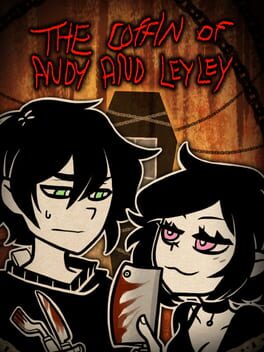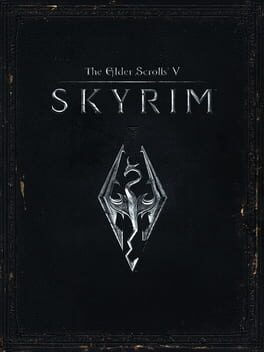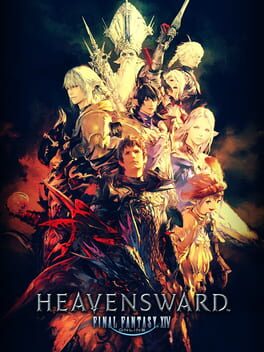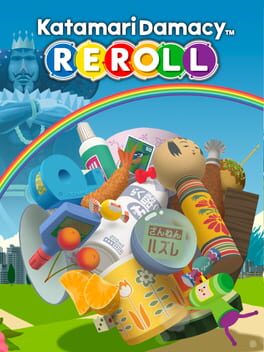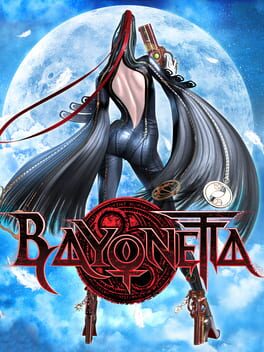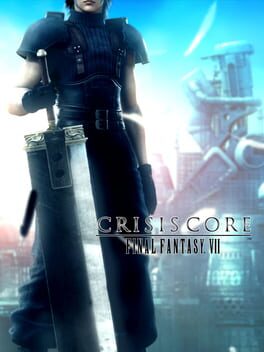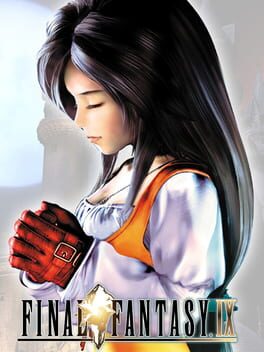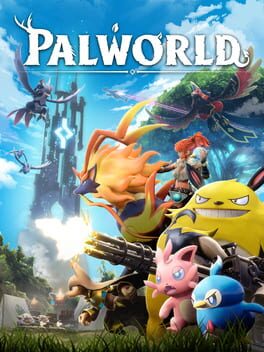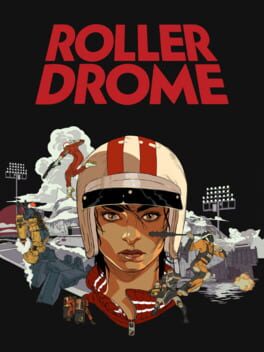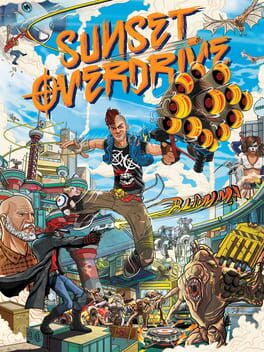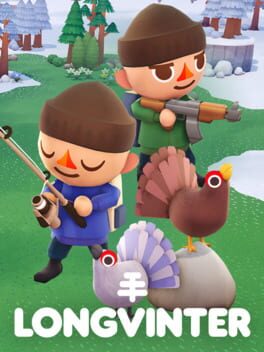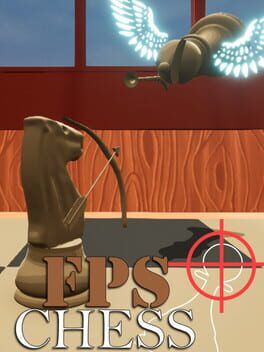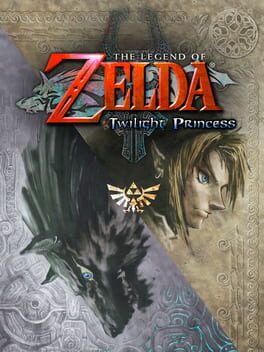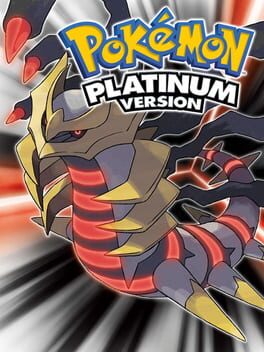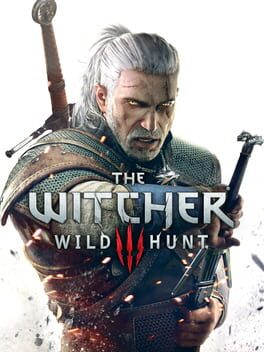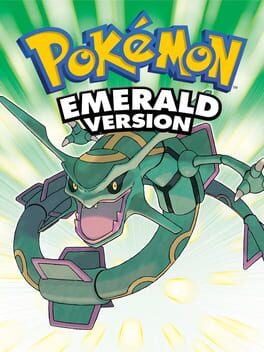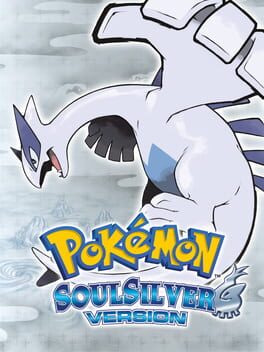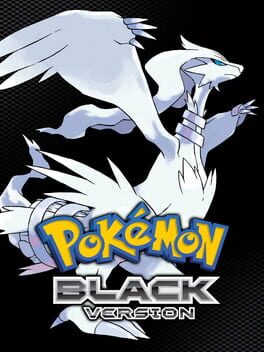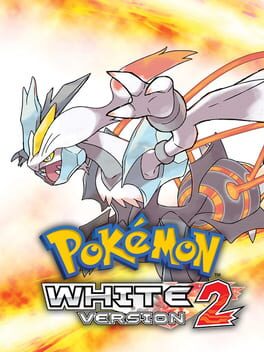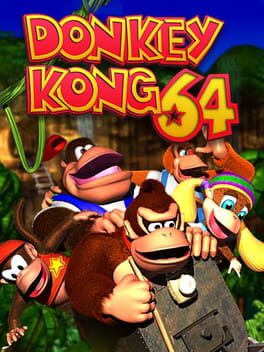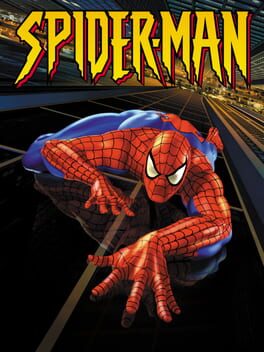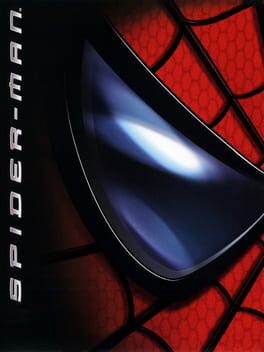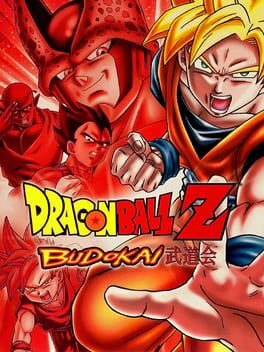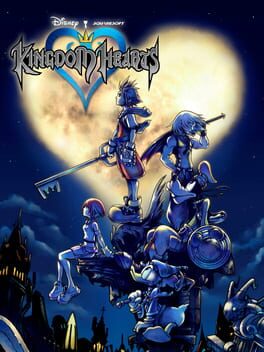HugzOnline
43 reviews liked by HugzOnline
A Short Hike
2019
This review contains spoilers
Charms you immediately with a simple, yet beautiful artstyle that fits the style and atmosphere A Short Hike is going for perfectly. Through very charming dialogue, we get to know the protagonist, Claire. She's waiting for a phone call, bothered that she doesn't have any cell phone reception, because this apparent thing is very important to her. Her aunt tells her that she should take a hike, literally, and that she might even get reception on top of the mountain, setting a clear goal and believable motivation for Claire.
As you begin your trek through the island, upwards to the mountain, you meet a bunch of cute, charming and funny characters that give you mundane tasks to do to help them out. A lot of the time, you will get something out of it, but it's not always a guarantee, yet it simply feels good to help out these folks that need your help. If you don't end up with a reward, you will at least get to feel their gratitude in most cases, giving a lot of life to these little characters that you sometimes don't even know the names of.
Through the tools and help that you gather around the island, you are able to start the real hike to the top. These mundane tasks done prior have a real weight to them when you consider that a lot of these characters indirectly help you in your hike as much as you helped them. Getting running shoes, golden feathers, a bucket, a compass, etc. will all help you get towards your eventual goal. But in the end, you have to make it yourself.
Reaching the top, you're able to enjoy the view and even witness an aurora borealis. You feel at peace, having made it this far. But then you get a call, like your aunt told you, there is reception up this peak. Through the phone call, you learn that Claire was stressed about the surgery of her mom. Her mom, in all familiarity, tells her not to worry and that she's proud of Claire for making it to the top. In an emotional climax, the two exchange loved words before a rare updraft bursts out of the lake at the peak. Claire's mom encourages her to ride the updraft while she still can and Claire, albeit nervously, takes the plunge. Soaring through the sky, going down all the way whence you came is an emotional and uplifting experience. You're able to pick up some tasks that you have yet to complete, but in the end, you go back to your aunt and tell her about your experience. Before taking a nap, Claire tells her aunt she's glad she came here, and so am I.
As you begin your trek through the island, upwards to the mountain, you meet a bunch of cute, charming and funny characters that give you mundane tasks to do to help them out. A lot of the time, you will get something out of it, but it's not always a guarantee, yet it simply feels good to help out these folks that need your help. If you don't end up with a reward, you will at least get to feel their gratitude in most cases, giving a lot of life to these little characters that you sometimes don't even know the names of.
Through the tools and help that you gather around the island, you are able to start the real hike to the top. These mundane tasks done prior have a real weight to them when you consider that a lot of these characters indirectly help you in your hike as much as you helped them. Getting running shoes, golden feathers, a bucket, a compass, etc. will all help you get towards your eventual goal. But in the end, you have to make it yourself.
Reaching the top, you're able to enjoy the view and even witness an aurora borealis. You feel at peace, having made it this far. But then you get a call, like your aunt told you, there is reception up this peak. Through the phone call, you learn that Claire was stressed about the surgery of her mom. Her mom, in all familiarity, tells her not to worry and that she's proud of Claire for making it to the top. In an emotional climax, the two exchange loved words before a rare updraft bursts out of the lake at the peak. Claire's mom encourages her to ride the updraft while she still can and Claire, albeit nervously, takes the plunge. Soaring through the sky, going down all the way whence you came is an emotional and uplifting experience. You're able to pick up some tasks that you have yet to complete, but in the end, you go back to your aunt and tell her about your experience. Before taking a nap, Claire tells her aunt she's glad she came here, and so am I.
I adore how the narrative is contextualized through your role as someone who perseveres in the face of the unforgiving nature of not only the setting but its mechanics. The player's will to engage with the game being used this way is so cool and the lengths the game goes to respect each players varying degrees of investment is amazing. You can get lost forever uncovering new details and peeling back the near infinite layers to lordran and it's history. Its masterful world design combined with its strict traversal limitations creates an intimacy with your surroundings that makes each moment of discovery just as magical as beating a tough boss. Locations are visually striking and rich with details that tell stories all their own and that level of intentionality can be found all over the place. Gameplay wise, most levels are outstanding and the estus flask fail state goes a long way into making them work as well as they do, along with the great enemy placement. I really like the choose your own difficulty element kindling adds to the system, and it just furthers how this game is obsessed with letting you meet it on your own terms. Progression is perfectly paced with a great escalation of difficulty through building knowledge and subtly teaching players lessons. Bosses are mostly very good and I appreciate the variety baked into each encounter, with things like the rooms informing your strategy, positioning based openings, tail weapons it all goes a long way in making each encounter distinct. The stamina based combat system is deceptively simple and lowkey genius especially with how deliberate your forced to be with your kit in this game. A lot has been said about fromsoft's hands-off approach to building player knowledge and what strikes me most about it is how it intuitively creates so many moments of discovery. The undefined nature of its systems allows players to further shape the experience to their liking, which directly ties into how your individual experience informs which ending you pick. For a game all about struggling in the face of pointlessness, it's amazing how much of the game design reflects how personal an endeavor that is.
This review contains spoilers
My first experience through Heavensward was one I regret. Because of my initial response with A Realm Reborn, I was less interested in what came after as well. Heavensward didn't manage to grab me as much as I wanted to and as a result I didn't pay a lot of attention to its dialogue and because I initially played it in Japanese, even its voiced acted cutscenes didn't resonate or stay with me. There's key moments I remembered, but also major points that were incredibly important to certain characters or the overall plot that I completely missed.
So now, replaying it after a newfound adoration for A Realm Reborn, I was very excited to get into Heavensward. From the start, benefitting from post-A Realm Reborn's ending, the story kicks off with interesting premise on both a political and personal level. Through the new environment of Ishgard, we get glimpses of its current conflict through Aymeric and House Fortemps that warmly welcomes the Warrior of Light, Alphinaud and Tataru. It's immediately engaging and intrigues the player into the political landscape, while becoming endeared to these new characters with a pre-established warmth through Haurchefant.
The story really kicks off with the introduction of the dragons. Estinien and Ysayle give us two skewed perspectives on the long conflict between man and dragon. Ysayle has a great character arc, letting us empathize with the dragons while having her own journey of self-discovery, but Estinien is the real star of this storyline. A character that has, builds and lost connections with so many of our cast, most important the Warrior of Light, Aymeric and especially Alphinaud. With these connections, Estinien parallels and contrasts one of the most important dragons in this story, Nidhogg. Both lost close ones, dear to them and set out on a path of vengeance, yet Estinien is able to forge bonds with those connections mentioned before, to put him on a path of healing.
While there is a lot of focus on the plot of conflict with dragons, it also serves and interconnects with Ishgard's internal political conflict with Thordan VII. Nidhogg is a more compelling antagonist overall, especially with his ending in Revenge of the Horde, but that doesn't diminish any of Thordan's qualities as another great antagonist of base Heavensward. His determination to keep the peace no matter what, to defeat the Ascians even if it means becoming a primal, he becomes an antagonist you can understand despite flawed measures to get where he got. But without him, Lahabrea wouldn't be defeated.
And despite it being detached from Heavensward's main story, the inclusion of the Warrior of Darkness and his crew was something special. Incredibly efficient with setup starting from As Goes Light, So Goes Darkness and completely focusing on the group in Soul Surrender with some of the most emotional writing and character conclusion thus far.
All of this culminates into a beautiful story that is Heavensward with its patches continuing to build on what the base game set, soaring into higher peaks that make me love the characters I already know so much more. Alphinaud, Estinien, Alisaie and the Warrior of Darkness stand out as some of the best content and characterization.
I'm happy to say that Heavensward is finally part of my huge love for Final Fantasy XIV, as I couldn't wholeheartedly say that in my first, very flawed playthrough.
So now, replaying it after a newfound adoration for A Realm Reborn, I was very excited to get into Heavensward. From the start, benefitting from post-A Realm Reborn's ending, the story kicks off with interesting premise on both a political and personal level. Through the new environment of Ishgard, we get glimpses of its current conflict through Aymeric and House Fortemps that warmly welcomes the Warrior of Light, Alphinaud and Tataru. It's immediately engaging and intrigues the player into the political landscape, while becoming endeared to these new characters with a pre-established warmth through Haurchefant.
The story really kicks off with the introduction of the dragons. Estinien and Ysayle give us two skewed perspectives on the long conflict between man and dragon. Ysayle has a great character arc, letting us empathize with the dragons while having her own journey of self-discovery, but Estinien is the real star of this storyline. A character that has, builds and lost connections with so many of our cast, most important the Warrior of Light, Aymeric and especially Alphinaud. With these connections, Estinien parallels and contrasts one of the most important dragons in this story, Nidhogg. Both lost close ones, dear to them and set out on a path of vengeance, yet Estinien is able to forge bonds with those connections mentioned before, to put him on a path of healing.
While there is a lot of focus on the plot of conflict with dragons, it also serves and interconnects with Ishgard's internal political conflict with Thordan VII. Nidhogg is a more compelling antagonist overall, especially with his ending in Revenge of the Horde, but that doesn't diminish any of Thordan's qualities as another great antagonist of base Heavensward. His determination to keep the peace no matter what, to defeat the Ascians even if it means becoming a primal, he becomes an antagonist you can understand despite flawed measures to get where he got. But without him, Lahabrea wouldn't be defeated.
And despite it being detached from Heavensward's main story, the inclusion of the Warrior of Darkness and his crew was something special. Incredibly efficient with setup starting from As Goes Light, So Goes Darkness and completely focusing on the group in Soul Surrender with some of the most emotional writing and character conclusion thus far.
All of this culminates into a beautiful story that is Heavensward with its patches continuing to build on what the base game set, soaring into higher peaks that make me love the characters I already know so much more. Alphinaud, Estinien, Alisaie and the Warrior of Darkness stand out as some of the best content and characterization.
I'm happy to say that Heavensward is finally part of my huge love for Final Fantasy XIV, as I couldn't wholeheartedly say that in my first, very flawed playthrough.
Final Fantasy VI
1994
This review contains spoilers
Frankly, Final Fantasy 6 should not work well at all.
It's a game that hinges on the strength of its cast, but was designed for a system where there was hardly room to explore these characters. Moreover, the actual interactions between the cast are mostly paper-thin. Its combat is mind-numbing sludge, bogging the player down at every turn with unmemorable and tedious random encounters. And for a game about picking up the pieces of a broken world, that very world is so flat and sparsely populated that I struggle to care about it.
But. You see the score. You know I love this game. In spite of all these complaints, I cannot deny the sheer power 6 has over me.
Any time I listen to "Searching for Friends," I remember the Falcon taking flight and skimming the ocean's surface, painted orange by the setting sun. When I listen to the credits theme, I think of Terra letting her hair free, finally unburdened by trauma and having found a reason to live. I often think about the image of the Phoenix superimposed over Locke, a man finally rising from the ashes of his past.
And then there's Kefka. Not much I can say about him that hasn't already been said. A truly special antagonist and probably my favorite thing about 6.
Uematsu's score takes all of these narrative elements and moments to new heights, imbueing them with a real sense of fairytale wonder that I keep coming back to. Frankly, if the soundtrack wasn't as strong as it was, I think my score would lower substantially. But no, Uematsu worked his magic.
So yeah, I love this game, despite all my grievances. It's greater than the sum of its parts, with almost every narrative element feeding into its messages on trauma, bonds, and moving on from the past.
It's a truly great thematic tapestry- I just don't hold it to the same pedestal as many others.
It's a game that hinges on the strength of its cast, but was designed for a system where there was hardly room to explore these characters. Moreover, the actual interactions between the cast are mostly paper-thin. Its combat is mind-numbing sludge, bogging the player down at every turn with unmemorable and tedious random encounters. And for a game about picking up the pieces of a broken world, that very world is so flat and sparsely populated that I struggle to care about it.
But. You see the score. You know I love this game. In spite of all these complaints, I cannot deny the sheer power 6 has over me.
Any time I listen to "Searching for Friends," I remember the Falcon taking flight and skimming the ocean's surface, painted orange by the setting sun. When I listen to the credits theme, I think of Terra letting her hair free, finally unburdened by trauma and having found a reason to live. I often think about the image of the Phoenix superimposed over Locke, a man finally rising from the ashes of his past.
And then there's Kefka. Not much I can say about him that hasn't already been said. A truly special antagonist and probably my favorite thing about 6.
Uematsu's score takes all of these narrative elements and moments to new heights, imbueing them with a real sense of fairytale wonder that I keep coming back to. Frankly, if the soundtrack wasn't as strong as it was, I think my score would lower substantially. But no, Uematsu worked his magic.
So yeah, I love this game, despite all my grievances. It's greater than the sum of its parts, with almost every narrative element feeding into its messages on trauma, bonds, and moving on from the past.
It's a truly great thematic tapestry- I just don't hold it to the same pedestal as many others.
The Silver Case
2016
"Fairytales are crimes. The unrealistic fantasy that happens in real life is a crime."
That's the first line I can think of when asked to explain what this game has to say as an exposition on crime in relation to human nature, and ultimately, figuring out what it all meant and the answer being so simple despite all the complicated and confusing plots and backgrounds is what has made it stick so much on my mind.
It's obtuse as hell in terms of story and game design, Suda's style has been there since day one no doubt about it, and that includes (to the dismay of some) tedious/baffling gameplay sections that hate the player with a passion and a disregard for coherent storytelling in favor of raw emotion or even explaining what is going on in a way that makes sense. I have like, zero experience engaging with a visual novel seriously and that's probably why it took me a whole year to finish, a genre so unappealing to me and these Suda-isms being presented in such a sluggish and hard to connect with way would've definitely made me drop this during a moment of weakness. But I'm glad i stuck with it until the end! Despite its failings there rly is no better introduction to the KTP series than this.
Took me a while but the more I played the more hooked I was, the more I felt like I understood its themes and characters but that was only the case once i got the full picture, which was hard as hell considering how much you need to go over them and how every character is not even allowed to be completely unlikeable. My interest began small but just kept growing, connecting chapters with their respective new order/joy division songs, learning more about the behind the scenes aspects of the game and Suda's mindset during it, and just falling in love with its style of writing and the unreal style of presenting the intended feeling before you can even begin to rationalize it. The socio-political commentary is still as poignant as it was in 1999 in regards to the corruption of anything this society has been built on and works with, and the way the internet has mixed itself with the despair and hope of trying to find sense through the whole thing and finding something real even against the knowledge that nothing really is and it's working against you, very reminiscent of metal gear solid 2 in that way even if it came after. But it was the ending that really solidified it for me because I've never felt what Kill The Past really meant until everything fell into place here, and once they've been given the agency to decide their outcome, their answers are simple as living with this pain, not giving a shit about the fate entrusted to them and seizing that fucking light before it's out.
It is what it always intended to be: a reflection on crime and human nature that can't be given an answer beyond what we decide to do with it ourselves, and that impression just hasn't left my mind and will probably grow more and more as the series goes along, and ain't that just the best.
That's the first line I can think of when asked to explain what this game has to say as an exposition on crime in relation to human nature, and ultimately, figuring out what it all meant and the answer being so simple despite all the complicated and confusing plots and backgrounds is what has made it stick so much on my mind.
It's obtuse as hell in terms of story and game design, Suda's style has been there since day one no doubt about it, and that includes (to the dismay of some) tedious/baffling gameplay sections that hate the player with a passion and a disregard for coherent storytelling in favor of raw emotion or even explaining what is going on in a way that makes sense. I have like, zero experience engaging with a visual novel seriously and that's probably why it took me a whole year to finish, a genre so unappealing to me and these Suda-isms being presented in such a sluggish and hard to connect with way would've definitely made me drop this during a moment of weakness. But I'm glad i stuck with it until the end! Despite its failings there rly is no better introduction to the KTP series than this.
Took me a while but the more I played the more hooked I was, the more I felt like I understood its themes and characters but that was only the case once i got the full picture, which was hard as hell considering how much you need to go over them and how every character is not even allowed to be completely unlikeable. My interest began small but just kept growing, connecting chapters with their respective new order/joy division songs, learning more about the behind the scenes aspects of the game and Suda's mindset during it, and just falling in love with its style of writing and the unreal style of presenting the intended feeling before you can even begin to rationalize it. The socio-political commentary is still as poignant as it was in 1999 in regards to the corruption of anything this society has been built on and works with, and the way the internet has mixed itself with the despair and hope of trying to find sense through the whole thing and finding something real even against the knowledge that nothing really is and it's working against you, very reminiscent of metal gear solid 2 in that way even if it came after. But it was the ending that really solidified it for me because I've never felt what Kill The Past really meant until everything fell into place here, and once they've been given the agency to decide their outcome, their answers are simple as living with this pain, not giving a shit about the fate entrusted to them and seizing that fucking light before it's out.
It is what it always intended to be: a reflection on crime and human nature that can't be given an answer beyond what we decide to do with it ourselves, and that impression just hasn't left my mind and will probably grow more and more as the series goes along, and ain't that just the best.
It's difficult to put into words not just what FFXIV means to me, but also just how transcendent the experience has been as a whole. Despite that I've been meaning to try to write down my thoughts on it ever since I finished the game at the start of this year.
To be honest I don't know if I'll ever be able to truly convey just how special this is; I've wrote countless pages at this point, but none of it truly reaches the essence of what exactly endeared FFXIV to me.
Anyway, here's a go at it for this year, I think I'll revisit this every once in awhile and see if I can improve upon it in any way.
---
FFXIV never turns away from all the sorrow and pain in our world, instead choosing to face it all head on-- there is so much suffering in this world, and amidst it all we cannot help but cry out for an answer: "Tell us why, given life, we are meant to die, helpless in our cries?"
But it is not a question so easily answered, and as we live our individual lives, our worldview is shaped by all the things and people we encounter, all the little pieces we pick up. An answer that is yours and yours alone.
Through all this darkness, bearing the sorrow of a thousand thousand worlds, we walk on. Gathering fragile yet precious pieces of happiness from the lives we have touched, slowly but surely, over and over again. Each and every one of them bears a different answer, yet it is their own all the same. We continue to grasp that hope.
It's a story that recognizes all the darkness in our life, but declares that through knowing that darkness, we come to know hope as well. It's a story that has so much faith in humanity, in our ability to forge ahead through all this pain, that we might grow from it, that we might become better versions of ourselves. It's a story that bursts with hope.
And what's so incredibly special is that this is all so organically communicated from the very start, from the moment we begin our journey in a realm reborn. That through the long journey that has brought us here to Endwalker, we have come to know so much sorrow and so much pain, but also the joyful moments and the hope we have grasped along the way.
It's been an especially tough year for me, at times I've felt like I didn't want to see tomorrow when it seemed to only hold suffering, at times I really just wanted it all to end. I'm really fortunate to have picked up Endwalker when I did.
Every once in awhile I'll encounter an experience like this, reminding me just how special and how powerful stories can be.
I'm glad I haven't yet given up. That even now, I'm living, holding onto those pieces of happiness I've picked up along the way.
My journey has been good. It has been worthwhile.
And it hasn't ended just yet-- it will continue on, ever onward.
Endwalker's message may seem overly optimistic, it may seem incredibly saccharine. But it has every right to be what it is. It can believe so much in people, because time and time again we have proven that through it all, we continue to live, we continue to hope.
"After all, miracles happen every day, do they not?"
To be honest I don't know if I'll ever be able to truly convey just how special this is; I've wrote countless pages at this point, but none of it truly reaches the essence of what exactly endeared FFXIV to me.
Anyway, here's a go at it for this year, I think I'll revisit this every once in awhile and see if I can improve upon it in any way.
---
FFXIV never turns away from all the sorrow and pain in our world, instead choosing to face it all head on-- there is so much suffering in this world, and amidst it all we cannot help but cry out for an answer: "Tell us why, given life, we are meant to die, helpless in our cries?"
But it is not a question so easily answered, and as we live our individual lives, our worldview is shaped by all the things and people we encounter, all the little pieces we pick up. An answer that is yours and yours alone.
Through all this darkness, bearing the sorrow of a thousand thousand worlds, we walk on. Gathering fragile yet precious pieces of happiness from the lives we have touched, slowly but surely, over and over again. Each and every one of them bears a different answer, yet it is their own all the same. We continue to grasp that hope.
It's a story that recognizes all the darkness in our life, but declares that through knowing that darkness, we come to know hope as well. It's a story that has so much faith in humanity, in our ability to forge ahead through all this pain, that we might grow from it, that we might become better versions of ourselves. It's a story that bursts with hope.
And what's so incredibly special is that this is all so organically communicated from the very start, from the moment we begin our journey in a realm reborn. That through the long journey that has brought us here to Endwalker, we have come to know so much sorrow and so much pain, but also the joyful moments and the hope we have grasped along the way.
It's been an especially tough year for me, at times I've felt like I didn't want to see tomorrow when it seemed to only hold suffering, at times I really just wanted it all to end. I'm really fortunate to have picked up Endwalker when I did.
Every once in awhile I'll encounter an experience like this, reminding me just how special and how powerful stories can be.
I'm glad I haven't yet given up. That even now, I'm living, holding onto those pieces of happiness I've picked up along the way.
My journey has been good. It has been worthwhile.
And it hasn't ended just yet-- it will continue on, ever onward.
Endwalker's message may seem overly optimistic, it may seem incredibly saccharine. But it has every right to be what it is. It can believe so much in people, because time and time again we have proven that through it all, we continue to live, we continue to hope.
"After all, miracles happen every day, do they not?"
To me, Katamari Damacy is the margherita pizza of video games. It's one of the simplest yet most innately fulfilling concepts in the medium: roll up things with your ball to become big to roll up more things. While this description is accurate however, it doesn't do justice towards the game's underlying complexity. Committal tank controls combined with the seemingly strewn about yet carefully placed objects of varying sizes means that Katamari forces players to consider both the micro and macro design which the game effortlessly excels at. The player must weave in and out of clusters of increasingly large objects, building up their sphere while also mapping out the optimal paths (snagging relevant objects while factoring in how their shapes, once collected, will alter the roll) and keeping in mind how larger objects must be avoided at first and later consumed in the growing mass as the world appears to shrinks around you. For this reason, I think it's not just a simple power fantasy, and instead more closely resembles pure obstacle escalation. Katamari Damacy really drills in the sense of player progression from how the world unfolds from sense of scale (which is why it gets away with only three distinct stages) and even seemingly inverts its own concepts with side stages that force you to avoid smaller themed objects just to get your katamari to the perfect size for the ultimate outcome: the reward is made that much more gratifying with just a bit of restraint.
This all works seamlessly because Katamari is the king of player feedback. It can certainly feel frustrating at first, getting tossed around like fireworks by these moving objects that dwarf you, but the game knows exactly how to communicate your inherent progress. As your ball exponentially swells, these moving objects go from sending you flying, to lacking any significant impact upon contact, to eventually spotting the player and running away from the growing catastrophe. There's nothing more viscerally satisfying than coming back to mobile obstacles that were pushing you around and flattening them, hearing their cry as they too become stuck in the jumbled mess of rolling flotsam while the King of the Cosmos quips in the background. Simply put, the concept never outstays its welcome.
Going back to the opening metaphor, it requires much finesse to make all these different concepts sing together with little friction in a video game, this fusion of audio-visual presentation and player input. That said, to successfully disguise its intricate design and depth beneath its far-reaching artistic vision and simple yet realized gameplay mechanics takes a master's touch. Katamari Damacy does not try to explain why it works or how it succeeds, because it simply is, and it just does. Perhaps I've moved onto greater and grander things since that have built off of this, but I have to admit that sometimes, you just can't beat the basics in life. It's always worth going back for a slice or two every now and then, just to remind yourself that this is why video games exist in the first place: because underneath all this talk of focus and cohesion, video games are just goddamn fun.
Also, it's fantastic hangover food for you and your buddies after a long night, when they come calling you for content and suddenly it's 3 AM in a packed Discord call where everyone is wailing "YOU'REEEEE LONNEEELLLY ROLLING STARRRR" as this growing, screaming ball of flailing limbs bounces helplessly about for yet another awry creation. Let the good times roll.
This all works seamlessly because Katamari is the king of player feedback. It can certainly feel frustrating at first, getting tossed around like fireworks by these moving objects that dwarf you, but the game knows exactly how to communicate your inherent progress. As your ball exponentially swells, these moving objects go from sending you flying, to lacking any significant impact upon contact, to eventually spotting the player and running away from the growing catastrophe. There's nothing more viscerally satisfying than coming back to mobile obstacles that were pushing you around and flattening them, hearing their cry as they too become stuck in the jumbled mess of rolling flotsam while the King of the Cosmos quips in the background. Simply put, the concept never outstays its welcome.
Going back to the opening metaphor, it requires much finesse to make all these different concepts sing together with little friction in a video game, this fusion of audio-visual presentation and player input. That said, to successfully disguise its intricate design and depth beneath its far-reaching artistic vision and simple yet realized gameplay mechanics takes a master's touch. Katamari Damacy does not try to explain why it works or how it succeeds, because it simply is, and it just does. Perhaps I've moved onto greater and grander things since that have built off of this, but I have to admit that sometimes, you just can't beat the basics in life. It's always worth going back for a slice or two every now and then, just to remind yourself that this is why video games exist in the first place: because underneath all this talk of focus and cohesion, video games are just goddamn fun.
Also, it's fantastic hangover food for you and your buddies after a long night, when they come calling you for content and suddenly it's 3 AM in a packed Discord call where everyone is wailing "YOU'REEEEE LONNEEELLLY ROLLING STARRRR" as this growing, screaming ball of flailing limbs bounces helplessly about for yet another awry creation. Let the good times roll.
6 lists liked by HugzOnline
by Indylord |
19 Games
by Drax |
36 Games
by CrazyKlownMan |
20 Games
by Aleczandxr |
10 Games
by Aleczandxr |
56 Games


